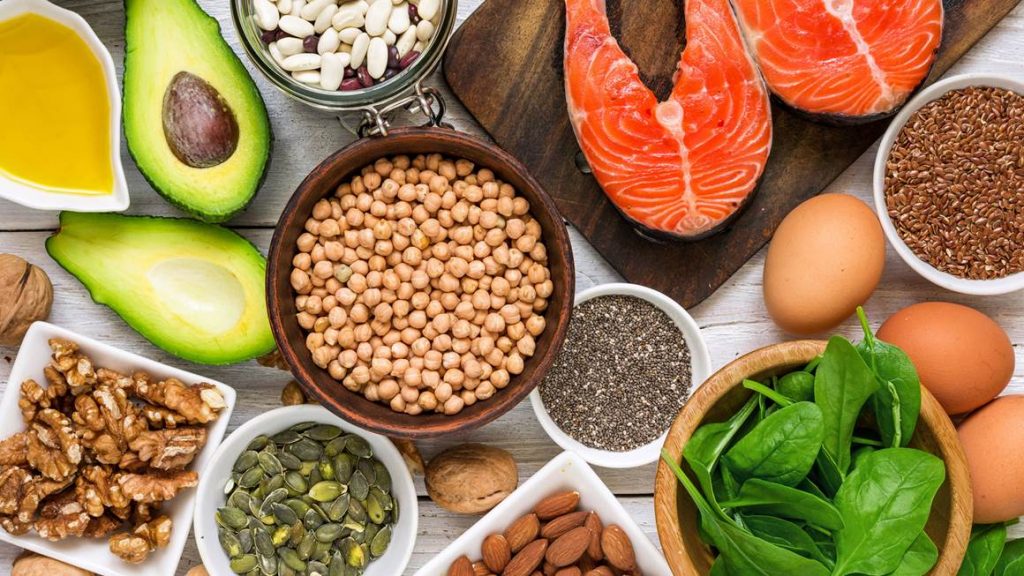New research shows that a higher intake of n-3 polyunsaturated fatty acids (n-3 PUFAs) is associated with a decreased risk of breast cancer in pre- and postmenopausal women, especially premenopausal women who have obesity.
Postmenopausal women have an increased risk of breast cancer, which is enhanced if they are overweight and have high cholesterol, hypertension, or both.
Since the body does not produce n-3 PUFAs naturally, incorporating foods high in n-3 PUFAs, also known as omega-3s, could help with breast cancer prevention.
Breast cancer is the most common form of cancer in women, with the exception of skin cancer. It accounts for 1 in 3 female cancers each year and occurs mostly in middle-aged and older women with a median age of 62.
The American Cancer Society Trusted Source estimates that 287,850 new cases of breast cancer will be diagnosed and 43,250 women will die in 2022.
While there are numerous factors that affect breast cancer risk, there is research to suggest that diet plays a key role in the development of the disease.
According to a new study, recently published in the journal Menopause, there is an inverse relationship between breast cancer risk and intake of n-3 polyunsaturated fatty acids (n-3 PUFAs), particularly in premenopausal women who have obesity.
PUFAs for breast cancer prevention
Omega-3 fatty acids Trusted Source are n-3 PUFAs, which are “healthy fats” known for their health benefits.
In the new study, researchers analyzed 1,589 cases of female breast cancer and 1,621 individuals without breast cancer. They assessed the subjects with breast cancer who consumed n-3 PUFAs and compared the data to subjects without breast cancer who consumed n-3 PUFAs.
Researchers also looked at whether the relationship was affected by menopause status, hormone-receptor status, or linoleic acid intake.
The study findings indicate that higher consumption of n-3 PUFAs was linked to a decreased risk of breast cancer. This was most prominent in premenopausal women and those with certain types of breast tumors.
According to a press release, women who were overweight or had obesity and increased their intake of n-3 PUFAs had a decreased risk of breast cancer. However, there was no significant association between decreased breast cancer risk among women with a healthy weight.

Risk factors for pre- and postmenopausal women
The risk of breast cancer increases with age, especially after age 50.
Women with certain genetic risks face elevated risks for breast cancer before menopause. Genetic factors, including a family history of breast cancer, also increase a person’s lifetime risk. Still, not every woman in the at-risk category develops breast cancer.
“Only 7% of breast cancer is in premenopausal women and these cancers tend to be aggressive,” said Dr. Thomas Strack, chief medical officer at Faeth Therapeutics. “In general, postmenopausal women tend to have less aggressive cancers that are more likely to respond to therapy.”
Among postmenopausal women, breast cancer risk increases if they are overweight and have high cholesterol, hypertension, or both.
In addition, obesity, specifically abdominal obesity, is associated with low-grade systemic inflammation with an imbalance between pro- and anti-inflammatory molecules, which may also contribute to a person’s increased risk for developing breast cancer.
Benefits of adding more PUFA-rich foods to your diet
Foods high in n-3 PUFAs — more commonly known as omega-3s — activate the body’s health defense systems, which helps the body resist a wide range of diseases, explained Dr. William Li, a medical doctor, researcher, and president and founder of the Angiogenesis Foundation President, and bestselling author of “Eat to Beat Disease.”
“There are many benefits to PUFA-rich foods due to the effects of [n-3] PUFA on your body’s health defenses. These include circulatory, anti-inflammatory, regenerative, antioxidant, and immune supporting benefits — all shown by decades of research,” Li told Healthline.
“The anticancer benefits observed are likely due to a combination of these benefits. In particular, [n-3] PUFAs [have] been studied in the lab and shown to starve tumors by cutting off their blood supply.”
According to Li, foods containing n-3 PUFAs can be especially beneficial to fighting off diseases related to excessive blood vessel growth, like cancer, or vision loss due to diabetes and age-related macular degeneration.
Which foods are high in PUFAS?
When it comes to getting more n-3 PUFAs in your diet, it’s never too soon to start. Foods rich in omega-3 PUFAs include:
- fish
- vegetable oil
- walnuts
- flax seeds and flaxseed oil
- leafy vegetables

Plant-based foods like nuts and seeds that can supply n-3 PUFAs are generally recommended for overall improved health. In addition, consuming marine foods that contain n-3 PUFAs, such as salmon, mackerel, anchovies, and shellfish, may also lower your risk of cardiovascular disease.
According to Dr. Monisha Bhanote, FCAP, founder and CEO of WellKula, plant-based foods rich in omega-3 fatty acids, such as oils, nuts, seeds, and tofu have a high alpha-linolenic acid (ALA) content.
Fish, on the other hand, which is also high in omega-3s, may contain a higher amount of eicosapentaenoic acid (EPA) and docosahexaenoic acid (DHA), which have been shown to reduce inflammation Trusted Source.
Therefore, women who are overweight or have obesity who increase their intake of omega-3 PUFAs could experience a reduced risk of breast cancer by lowering inflammation in the body, Bhanote explained.
How much omega-3 should you eat?
When it comes to how much omega-3 PUFAs to consume, recommendations may vary based on how an individual metabolizes n-3 PUFAs, as well as their age, biological sex, and any concurrent chronic conditions or diseases.
For this reason, getting a tailored recommendation for n-3 PUFA-containing foods from your healthcare professional is best. You can also refer to this table of recommendations Trusted Source for daily servings of omega-3s from the National Institutes of Health.
As a rule of thumb, however, fat, including healthy fats derived from n-3 PUFAs, should comprise no more than 20% to 35% of your total daily calorie intake.
Takeaway
New research shows that a diet high in n-3 PUFAs may help prevent breast cancer in pre- and postmenopausal women, especially premenopausal women who are overweight or have obesity.
Genetic factors and a family history of breast cancer can affect a person’s risk for breast cancer, as well as other factors. To assess your personal risk, it’s best to speak with your doctor.
A balanced diet and a healthy lifestyle play an important role in cancer prevention. This includes regular exercise and eating healthily, but also abstaining from smoking, reducing alcohol intake, getting adequate sleep, and practicing stress management.
As Li told Healthline, you may not be able to control your genetics, but you can take charge of your lifestyle.



1 comment
I have read your article carefully and I agree with you very much. So, do you allow me to do this? I want to share your article link to my website: Cryptocurrency Prices